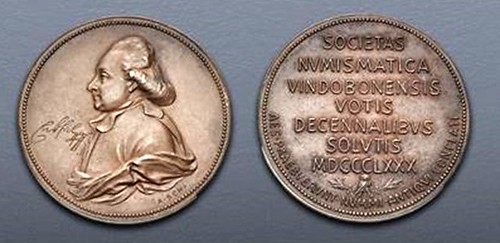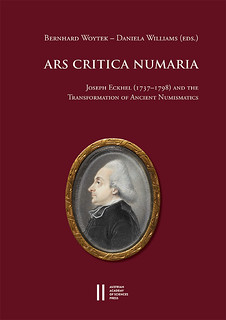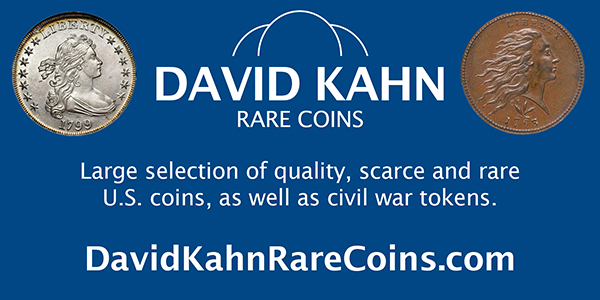
PREV ARTICLE
NEXT ARTICLE
FULL ISSUE
PREV FULL ISSUE
JOSEPH HILARIUS ECKHEL (1737-1798)E-Sylum Feature Writer and and Coryphaeus American Numismatic Biographies, Pete Smith submitted this article on the "Father of Numismatic Science." Thanks! -Editor This week I step out of my comfortable rut, writing about American numismatics personalities, and into the broad area of world numismatics. My topic is the man called the father of numismatic science.
Joseph Hilarius Eckhel (1737-1798)
In about 1960, my father bought a set of the 1911 Encyclopedia Brittanica from a neighbor. The set is now in my library. It is not often that I get the opportunity to quote it. This listing has not improved since 1911.
My father did not acquire the 1913 Catholic Encyclopedia which provides additional information on Eckhel. His father was Johann Anton Eckhel. After transcribing the above, I did not feel like transcribing the entire listing from The Catholic Encyclopedia. I will include a few quotes. "His delivery is described as being simple, clear, instructive, inspiring, and often abounding in humour. He was highly regarded by his pupils. That he also enjoyed high repute among his colleagues is attested by his appointment as dean of the philosophical faculty in 1789. However, he soon resigned this position." This includes a later quote from Friederich Kenner: "Misguided dilettantism had produced most mischievous results in the field of Numismatics. Lack of system, want of critical judgement, and the disorderly arrangement of the literature had begotten confusion and distrust, which prevented numismatists from taking the place among other sciences to which it was entitled. … Numismatics, hitherto despised, he changed into a kind of encyclopedia of classical antiquities, which includes extensive and much-used sources for other branches of archaeology." Prior to Eckhel's work, coin collections were generally described in alphabetical order and with little historical context. Eckhel organized coins according to the cities, other than Rome, where they were issued. He organized Roman coins based on chronology. The Eckhel system is now called "Eckhelsche Ordnung." In addition to the organization, Eckhel corrected previous misattributions and identified spurious coins. As with many first attempts, Eckhel made some errors in attribution. Numismatic science allows for corrections to be made as new information is developed. If you wish to read Doctrina numorum veterum in Latin, it is available on Internet Archive. I suspect that few readers of The E-Sylum will take the opportunity. I also suspect there were few readers of coin books in Latin when this was published in 1792. The series may have revolutionized the organization of scholarly works, but they failed to popularize the hobby. For their tenth anniversary in 1880, The Numismatic Society of Vienna commissioned a medal in honor of Eckhel, The metal for the medal came from melted ancient coins. How many ancient coins were sacrificed to make the medals? In 1972, a side street was named for him in Vienna.
Just two years ago in 2022, a book on Eckhel was published. Ars critica numaria, Joseph Eckhel (1737-1798) and the development of numismatic method. The book was compiled by Bernard Woytek and Daniela Williams from the papers presented at the 2015 conference on Eckhel. A PDF version of the book my be found at https://austriaca.at/0xc1aa5576_0x003da939.pdf
To read the earlier E-Sylum articles, see:
Wayne Homren, Editor The Numismatic Bibliomania Society is a non-profit organization promoting numismatic literature. See our web site at coinbooks.org. To submit items for publication in The E-Sylum, write to the Editor at this address: whomren@gmail.com To subscribe go to: https://my.binhost.com/lists/listinfo/esylum All Rights Reserved. NBS Home Page Contact the NBS webmaster 
|



